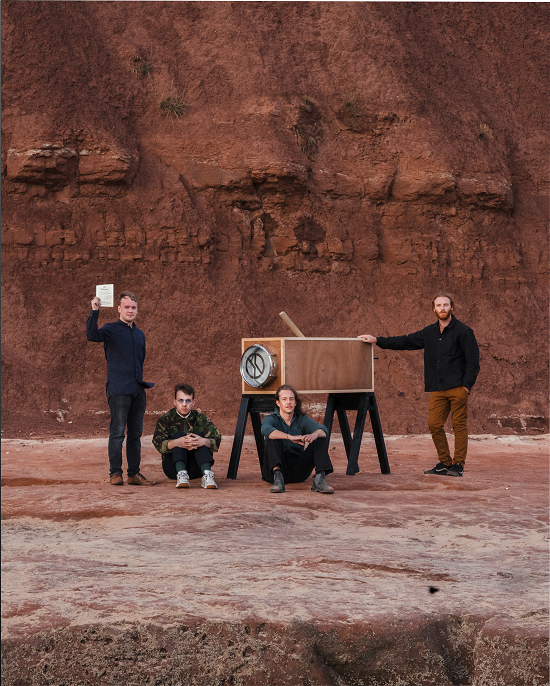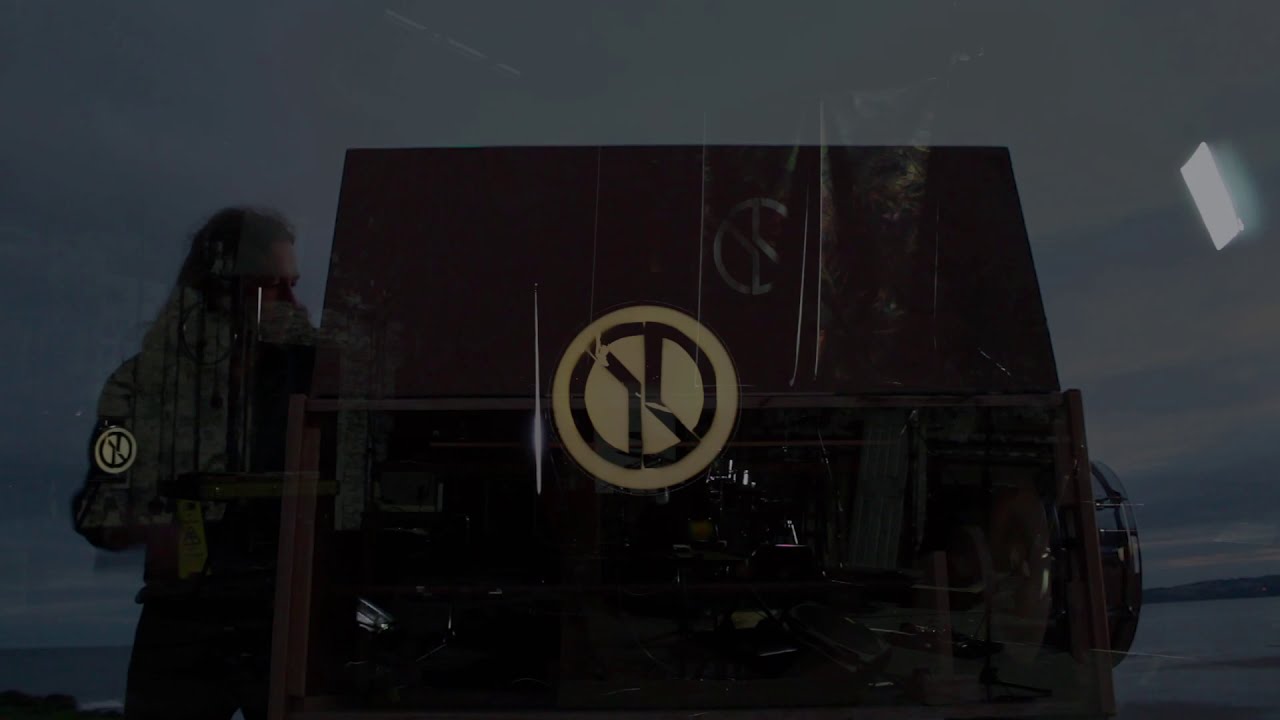Photos by Rowan Allen
LICE formed over a shared attraction towards extremity. At first, they found it in early post-punk music, bands like Bauhaus and The Birthday Party that were the logical next step from the respective alternative rock upbringings of guitarist Silas Dilkes, bassist Gareth Johnson and drummer Bruce Bardsley. The genre was completely new to frontman Alastair Shuttleworth, who had been raised on a diet of “standard issue canonical indie fare” as well a “fascination” with Orchestral Manoeuvres In The Dark. “Discovering that early post-punk music, it was an incredibly extreme and transgressive, dark, caustic musical language that felt very strange and alien,” he says on a Zoom call. You can hear its influence in their early releases, the rollicking 2017 single ‘Human Parasite’ and their unhinged and scuzzy 2018 EPs It All Worked Out Great volumes one and two.
Before long however, post-punk began to lose its edge. “Things that were once extreme become not boring, but familiar,” says Dilkes. Through a combination of over-familiarity with the genre’s attributes, and the influence of boundary-pushing bands in their native Bristol like audio-visual power-rave titans Scalping and the roster of avant garde label/collective Avon Terror Corps, LICE grew more ambitious. They began writing their new record WASTELAND: What Ails Our People Is Clear during the run up to the release of the double EP version of It All Worked Out. “We’d been dwelling on the feelings towards LICE and what we wanted to do musically for some time already,” Shuttleworth says. “But it was that release that gave us the impetus to really write down what we wanted to do and what we were interested in. Around that time, it was decided that it was going to be a concept album.”
As early as 2016, when they were starting to break into the London circuit, the band were suffering from lazy comparisons. “We were lumped in with a wave of similarly post-punk-orientated guitar projects that emerged in the wake of Fat White Family, who we played one of our first shows opening for,” Shuttleworth says. “While we doubtlessly benefited from this, and it was underpinned by real friendships with peers, the industry’s concerted efforts at the time to construct younger, more marketable Fat White Family alternatives saw a lot of that chaotic, nihilistic language imposed on us collaterally. It limited our scope and didn’t sit right with where we were coming from – even in the early days.” After touring with IDLES and releasing It All Worked Out Great via singer Joe Talbot’s label Balley Records, “the impulse from critics to see us as something IDLES-adjacent imposed similar limitations on how well we felt we could reach people.”
Compare WASTELAND, released last month, to their earlier work and it feels like something of a statement, “a way to give real expression to our own voice and ideas,” as Shuttleworth puts it. A breathless and colossally ambitious concept LP, it comes with an accompanying piece of Burroughsian experimental literature from which the record’s lyrics and story are drawn – a strange, fractured and at times grotesque sci-fi narrative starring an evil scientist intent on engineering humanity’s self-destruction, a murderous sentient penis, a time-traveller, a music journalist transformed into a ball of ectoplasm, a spider and a giant pink blob, it constantly flits between prose, poetry and script. ‘WE ELEVATE THE SATIRICAL SONG LYRIC TO THE HIGHEST REALMS OF DRAMA’ it proclaims boldly on its front cover under a list of failures they’ve identified in satire and songwriting. ‘Egotism, driving a desire to have one’s work accepted at the expense of invention’ for example.
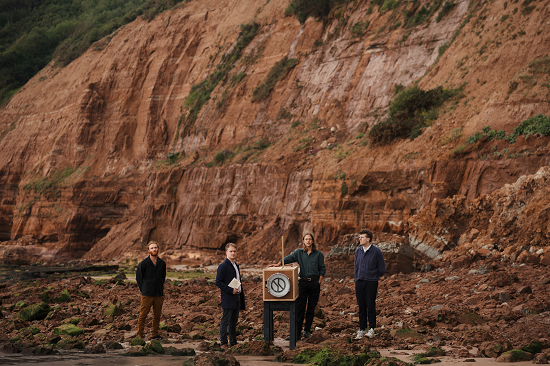
They were growing increasingly dissatisfied with what they saw as certain trappings associated with the post-punk scene that had surrounded them in their first phase. “I think there’s a general tendency to see the function of satirical or politicised music as being directed towards galvanisation of an audience towards a singular moral right, a correct way of considering things,” Shuttleworth continues. “As a result of that there’s this papering over the real ways in that things like bias and the social crises of our time actually exist in the real world, in this incredibly complex moral universe that’s driven by implicit and unacknowledged forms of hate and misunderstanding. To my mind, satirical and politicised music should be geared towards understanding these things in more complex and nuanced moral terms, economic terms and societal terms.” LICE started to consciously look for ways to evolve.
This all fed into the experimental literature that accompanies WASTELAND. “I wanted to argue for lyrical experimentation and unsettling the prevailing conventions of what song lyrics are and what song lyrics do, and to body forth a more complex moral understanding of the crises we would have talked about in the way I described previously if it was a conventional punk record,” Shuttleworth says. The decision to compile his writings into a physical pamphlet was a nod to the Italian futurists, copies of whose Manifesto Of Futurist Painters were thrown from a clock tower in the commuting path of Milanese factory workers. “While it might seem gimmicky, I decided that this was going to be the most effective way to get across the point of the lyrical experiment.’”
LICE draw on a number of different extramusical influences for WASTELAND, the intensity and spirit of William S. Burroughs, the strange playfulness of Kurt Vonnegut, Harold Bloom’s Shakespeare: The Invention Of The Human in which he outlines Shakespeare’s revolutionary advances in complex characterisation, and Brian Catling’s The Vorrh trilogy of dark historical fantasy novels. None, however, hold as much sway over the project as the Italian futurists. “I was inspired by their incredibly ridiculous and eccentric and extreme arguments about the complacency and the conservatism they saw in the art world at the time,” Shuttleworth says. He found parallels between the Futurists’ dissatisfaction with art’s response to the volatility of the early 20th century with his own at the lack of experimentation in modern song writing during this next period of rapid transformation.
“They were trying to use innovations of the time to present this new focus on the aggression and the violence and the speed of a new age, but that was hugely driven by a resentment towards certain facets of the existing landscape,” he continues. “That kind of gelled with I guess the conversations we were having in LICE at the time where we were starting to feel disillusioned with what we were surrounded by and what we saw ourselves as being identified with.”
By the time the first coronavirus lockdown hit last year, they had the majority of the record written and recorded and just one studio session still to go, but the enforced downtime gave them scope to tighten the bolts further on the record’s framework. Suddenly without work and holed up at his parents’ house, bassist Johnson decided to take advantage of his family’s woodshop to build his very own iteration of the intonarumori, a series of experimental musical instruments invented and constructed by futurist Luigi Russolo to be capable of producing sounds more in keeping with the harsh clatter of industry than a traditional orchestra. “It presented an opportunity to merge the influence on the lyrics with the musical side of the record and the actual instrumentation,” he says. Working from Russolo’s rough sketches, online blogs and YouTube tutorials, it’s a close match to the original instruments, but with added electronics.
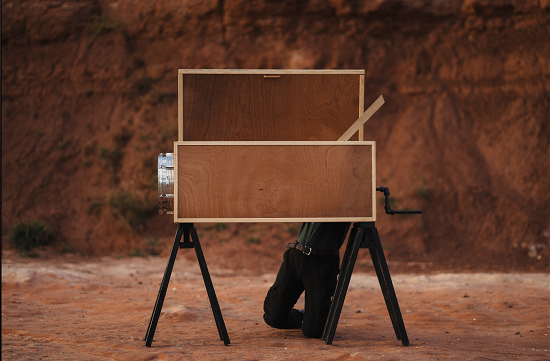
LICE’s intonarumori
You can hear the weird, churning sound of Johnson’s intonarumori on the first three songs on WASTELAND, as well as halfway point ‘Persuader’ and closer ‘Clear’. The record also encompasses elements of minimalism, industrial music and abstract noise, but LICE have nevertheless made the decision not to depart with the constraints of being a four-piece guitar band. Rather, they’re intent on subverting that structure from within, stretching the genre’s tried-and-tested fabric to its limit in order to make their ambitious pieces work. They could have rested more heavily on Russolo’s original aims for the intonarumori to replicate the roars, whistles, whispers, screeches, bangs and screams of industry, but instead chose to bring it into the fold of guitar music. “There’s not been enough people trying to do more with those conventions, and as a result it feels like the people in this landscape, including ourselves, feel as though there’s less that you can do,” Shuttleworth says. “That’s what WASTELAND was designed to do, trying to see if we could unsettle things in a constructive way.”
All of LICE’s efforts raise the question, is the lack of innovation they detect in modern post-punk the result of guitar music not being able to articulate things with the required detail – a hammer where a scalpel is required – or is it simply a lack of imagination in the practitioners? “You might regard the second view as being informed by the first,” Shuttleworth says. “I think you can see this landscape as having had a sense of complacency pass over it. It’s been so marketable and so easy to acclaim the kind of music that’s determined by conventions, certainly in the latest wave of post-punk informed music which might be seen as limiting people’s expectations of what that music does.”
“These days due to modern technology the range of tones available is immense, and if you want to do something you need to simply go on a laptop, find a patch for a midi keyboard and you’ve got a range of industrial sounds you can apply,” adds Dilkes. “But I think there is virtue in going through the process of understanding how to harness sounds we were interested in and recreate them through a simple tool like a guitar. It gives you a better understanding I think of why you might want to make that sound in the first place. Whether it’s a successful endeavour or not kind of doesn’t matter, just by going through the motions you’re finding out.”
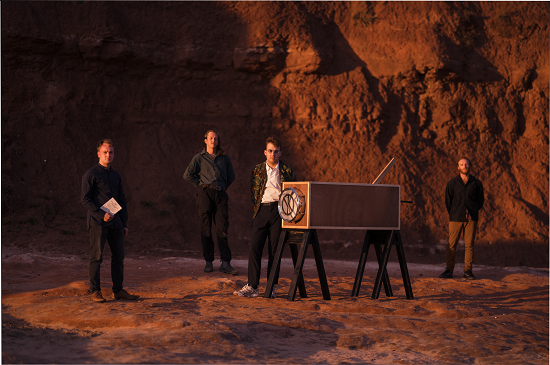
The band are keen to note that while WASTELAND presents an argument about the shortcomings of satire in contemporary music, but it doesn’t offer a prescription. There are others pushing boundaries in politicised music, like Avon Terror Corps associates HARRGA’s 2019 multi-lingual masterpiece concerning the migration crisis Héroïques Animaux de la Misère, they say, as well as others they’re undoubtedly yet to come across. “What we’re presenting is an idea of how you can run with this idea that satirical music needs to experiment with itself in order to offer anything truly constructive. I guess the best thing that we can hope to do with this record is to encourage more of that.”
Above anything else, what stands out about LICE’s debut album is just how well they’ve married their high-reaching conceptual ambition with their ability to write what is at its core an excellent guitar record. Their more pretentious leanings – we end the interview with a fable about Japans’ two most legendary swordsmiths Muramasa and Masamune, and a discussion about what it says about the purpose of experimental music – are tempered by self-awareness and tongue-in-cheek humour. “When we were in the studio recording ‘Serata’ the producer Alex Greaves asked ‘What’s this one about?’ and I said ‘It’s about a spider and a robot and they’re friends,’” laughs Shuttleworth. “An eight-year-old could have written it!”
WASTELAND: What Ails Our People Is Clear is out now. You can purchase it digitally, on CD and on vinyl here

